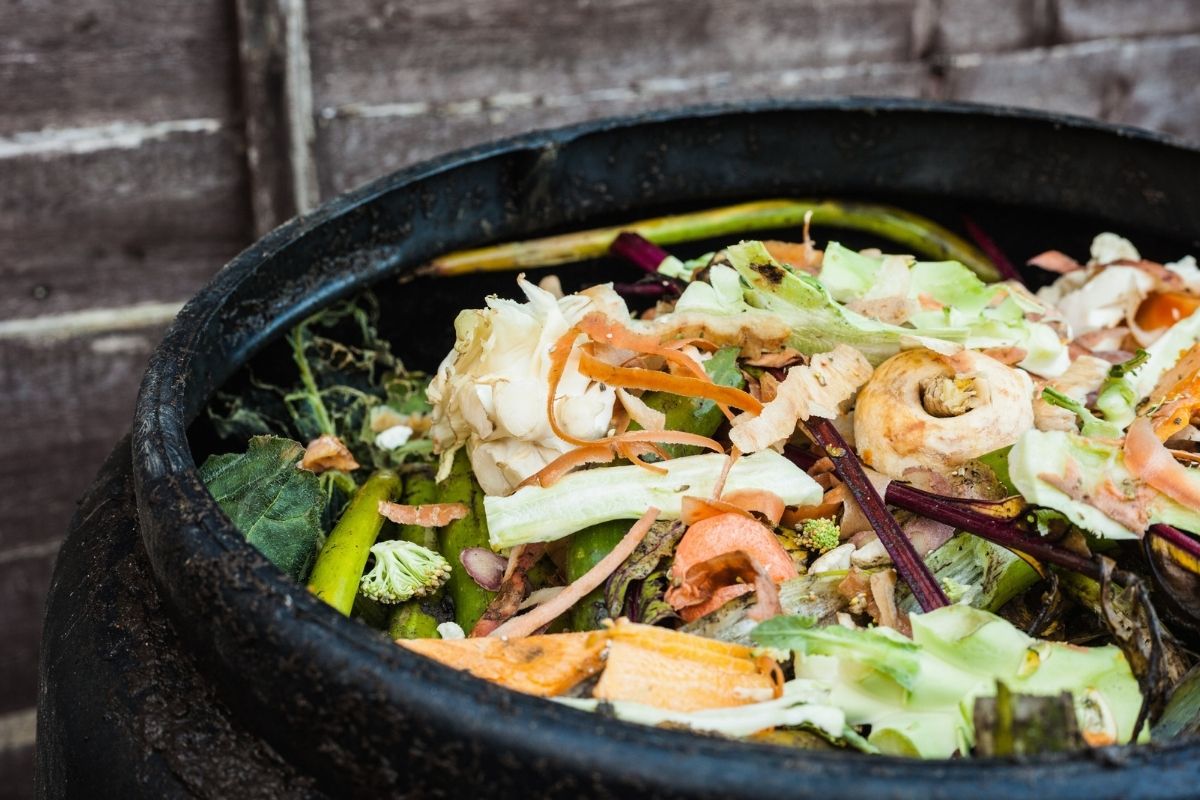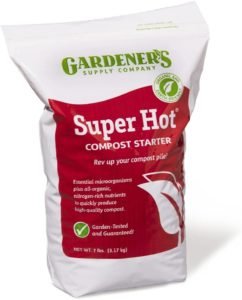All organic matter breaks down naturally, but when we actively direct the process by composting, it can go a lot faster and be a lot more productive. One of the ways you can get your compost heap rolling is by adding a starter.
What is in compost starter
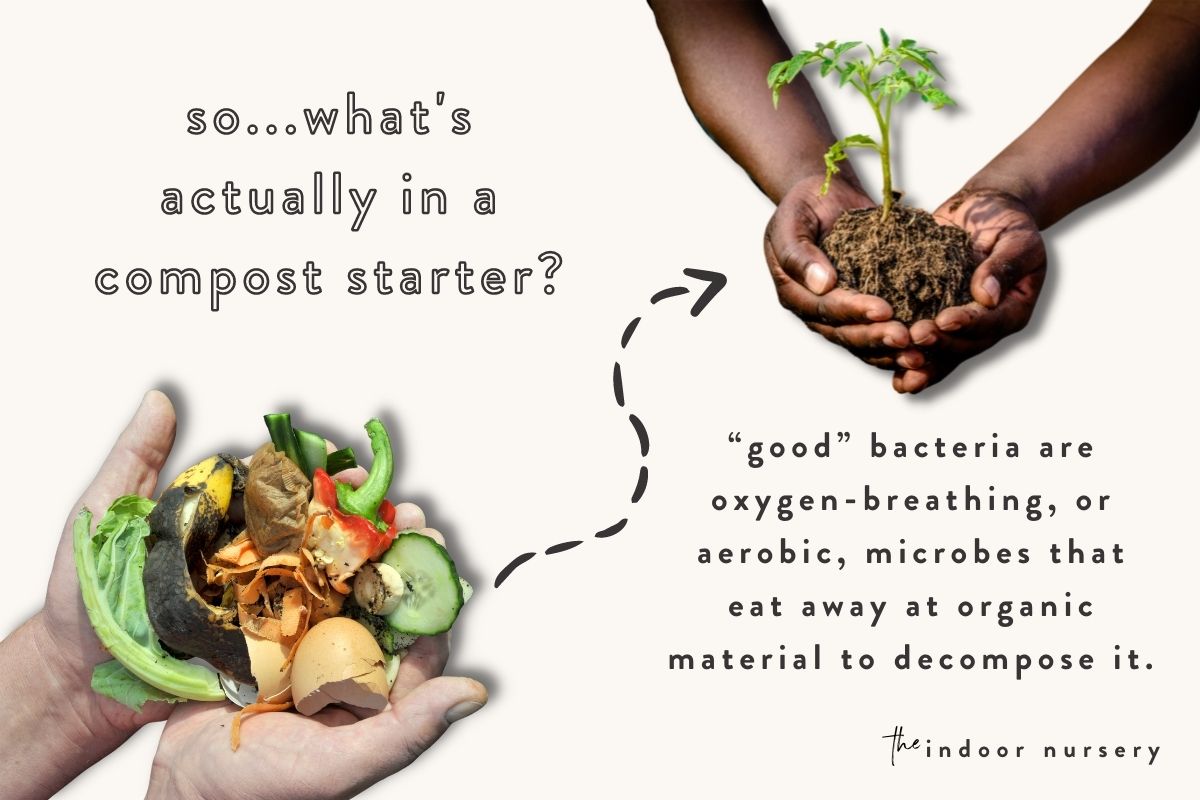
Compost starter is anything that you add to begin the decomposition process of a new compost pile. A good starter contains the kind of bacteria that we need to break down organic matter (like kitchen scraps and yard waste) in a way that results in a potent fertilizer.
The “good” bacteria are oxygen-breathing, or aerobic, microbes that eat away at organic material to decompose it. In nature, this is how soil is formed, and when we compost, we’re speeding up that process to make a dense, nutrient-rich material called humus, which soil is partially made up of. When compost is added to your plant’s soil, nutrients are released slowly over time to support your plant’s growth. Compost also adds volume to your soil, allowing it to hold more moisture and air.
The materials that make up most compost include leaves, grass clippings, food scraps, straw, and paper. Ingredients of compost fall into two categories: brown, or carbon-rich, and green, or nitrogen-rich. A balance of the two is important for good compost:
- They break down at different rates – Green materials include kitchen scraps like lettuce, fruit peels, carrot tops, and other leafy greens. This also includes garden waste like weeds and grass clippings. These moisture-rich materials break down quickly, whereas brown materials like coffee grounds, egg shells, dead leaves, and straw take much longer to decompose.
- Equal parts wet and dry materials – Green materials release lots of moisture as they break down, and water must also be added throughout the decomposition process to keep the bacteria and fungus alive. Since things can get pretty wet in a compost heap, brown materials, which are dry, need to be added to soak up moisture and provide structure to the mixture. Organic gardening isn’t an exact science, but at least a 50/50 mix should be aimed for, but some gardeners like to add a little extra brown material to be sure.
- Supportive environment for bacteria – As we mentioned, the good bacteria that break down compost into soil are aerobic, which is why the compost needs to be mixed up regularly to add oxygen and keep liquids from settling. Too wet of conditions will kill the aerobic bacteria, and attract anaerobic bacteria that thrive in wet conditions and will rot the materials. Too dry of conditions won’t host any life at all.
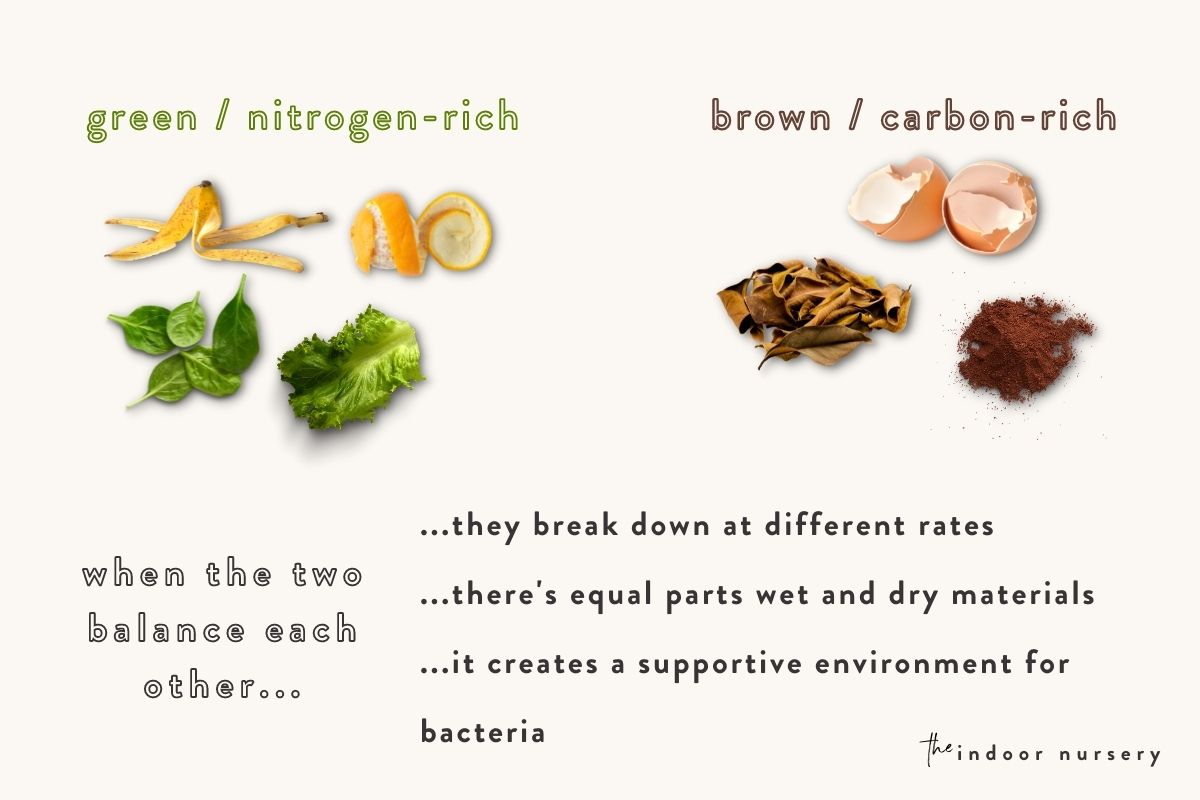
For a compost starter to work, the compost pile itself needs to be able to be decomposed. Well-layered and well-mixed green and brown materials should be in a container of at least a cubic yard, or 3x3x3 feet for the heap to be dense enough for the bacteria to feed on. The center of the pile is where the most activity is: it’s the most insulated part of a compost heap, so when adding starter to a pile, make sure it’s inside, and not on top, of your materials.
What makes the best compost starter?
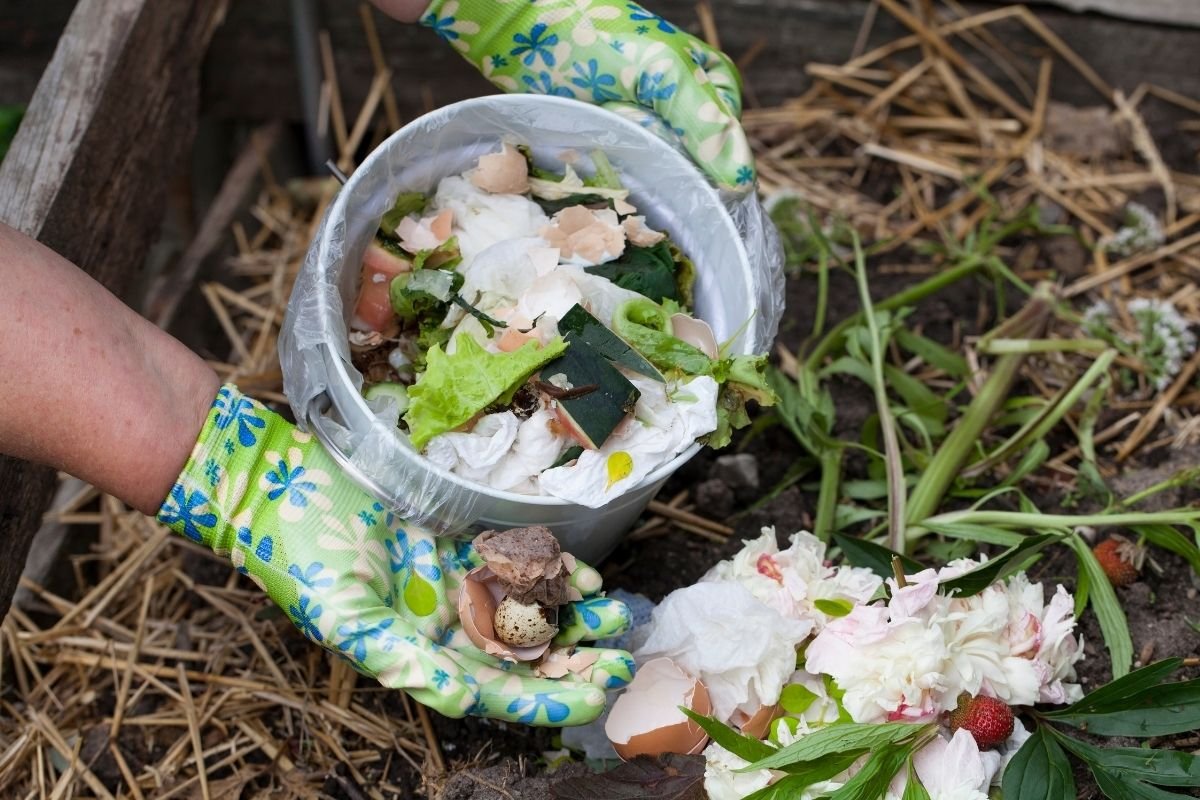
The first few weeks of the composting process is going to be when bacteria are most active, while the latter part of the composting process is fungus-dominant. The bacteria’s activity in the beginning creates the conditions for the fungus to take over when the time comes, so a compost starter should be rich in those good bacteria to jumpstart the decomposition process. Starter microbes can be added from a number of sources, including both home-sourced activators and retail products.
Super hot compost activators
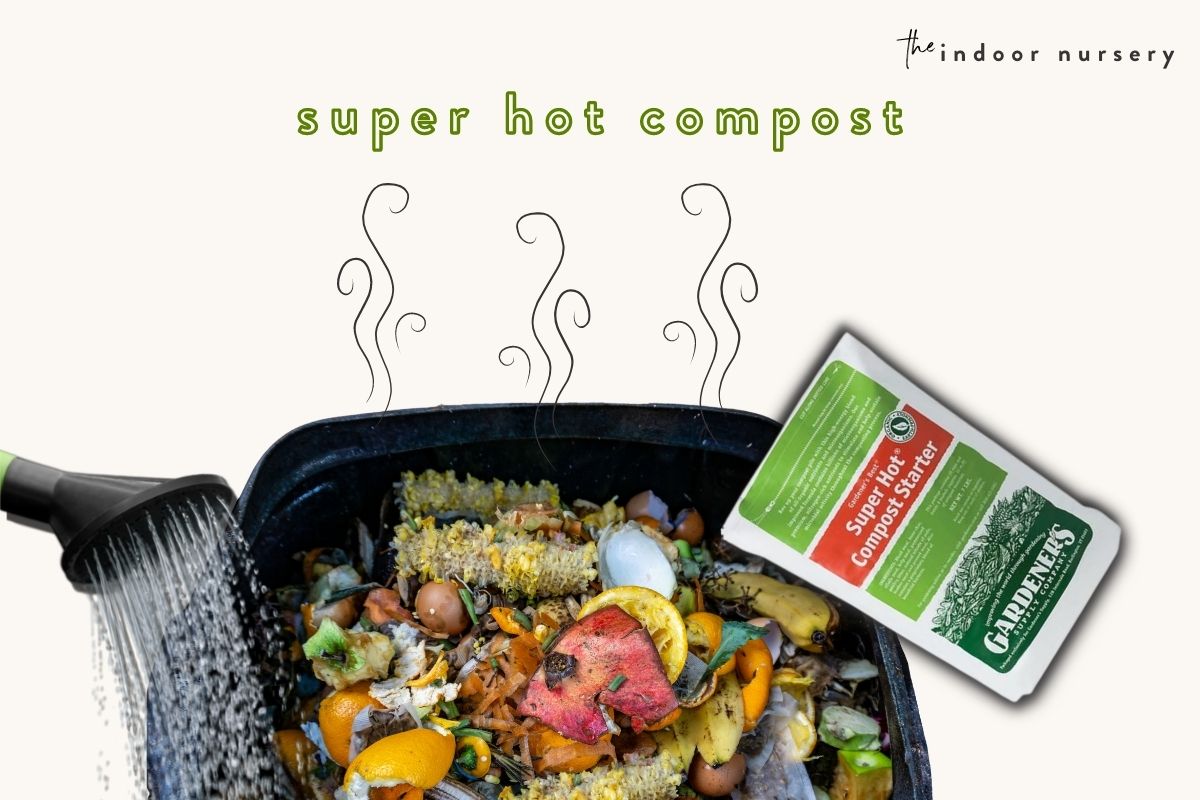
A super hot compost starter has a base of nitrogen-rich meal that will feed the bacteria that the product is inoculated with. When you mix this type of product into a compost pile and add water, the bacteria will be revived and be able to start reproducing immediately by feeding on the nitrogen sources.
Once the bacteria are active, they’ll start creating the heat that is a sign of decomposition. Gardener’s Super Hot formula contains sources of nitrogen that can really get the heat going, including bone meal, pasteurized poultry litter, feather meal, grain meal, and other nitrogen-rich materials.
Compost inoculants (bacteria)
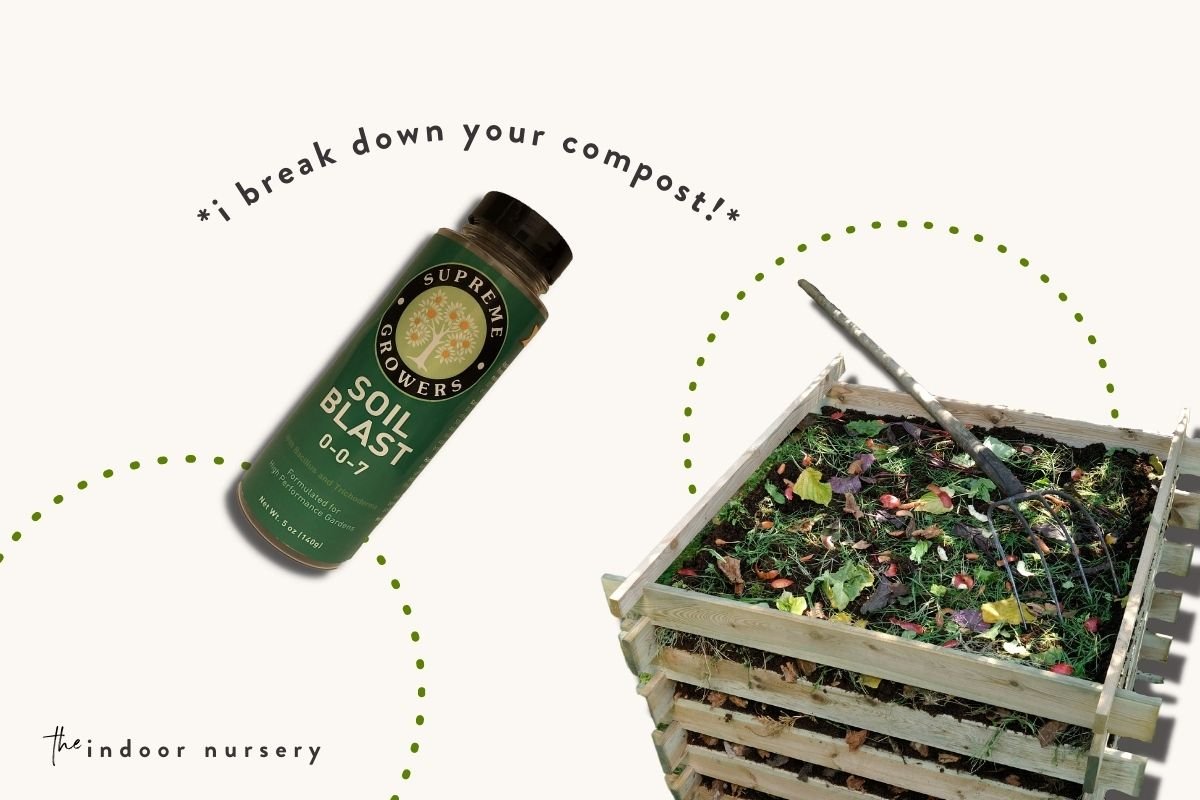
Compost inoculants contain dormant, or inactive, bacteria that are revived when mixed into water before adding to compost, when they’ll quickly get started with the decomposition process. Products like Soil Blast Concentrate by Supreme Growers are full of good bacteria that work to break down your compost pile into usable, nutritious humus.
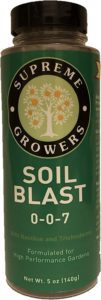
All natural compost starters
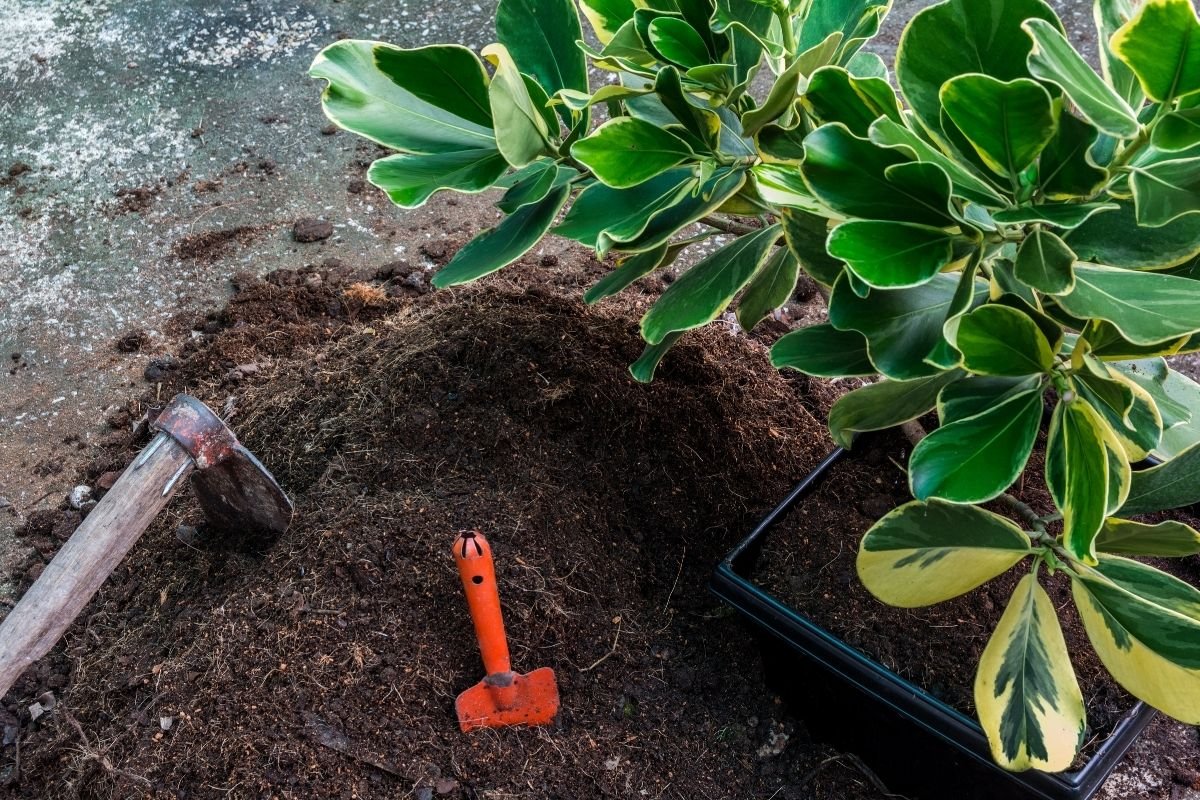
If you want to make your own compost starter, you have a few options, which may depend on the materials you have available. The easiest and most available option is garden soil. Adding a handful of dirt from the ground to your compost pile adds the good bacteria that will start to break down the materials. Although this dirt may contain weed seeds or insects, the heat of the compost once it gets going will destroy those unwanted extras, and any other pathogens that may come from your soil sample.
Another easy option is to add already-finished compost to your compost bin. The bacteria that you need to get the process going will be present and active in a sample of finished compost. This option only works, however, if you have access to a second heap.
Fresh manure is a quintessential compost starter if you’re in a rural area, or have access to cow or chicken manure from a farmer’s market or garden center. In nature, manure of all kinds is a normal part of soil and is full of decomposing microbes that will get the compost started.
Commercial compost starters
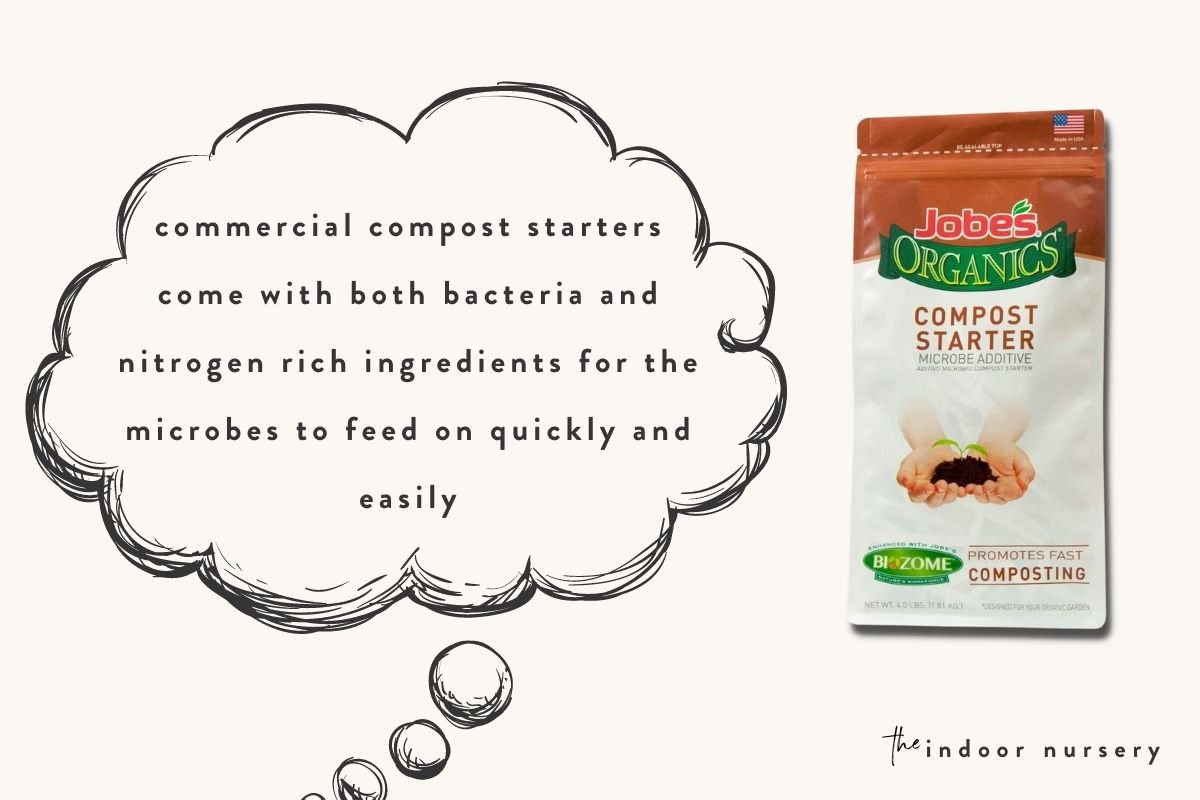
Commercial starters, like the Super Hot formula, come with both bacteria and nitrogen rich ingredients for the microbes to feed on quickly and easily, getting your compost going right away. Jobe’s Organics Compost Starter is another popular starter that increases microbial activity to produce fast composting results.
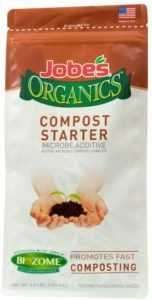
How to make compost starter
Aside from the retail and natural sources of decomposing bacteria, there are some home recipes you can try from food items you might have around the house..
Beer, ammonia, and soda
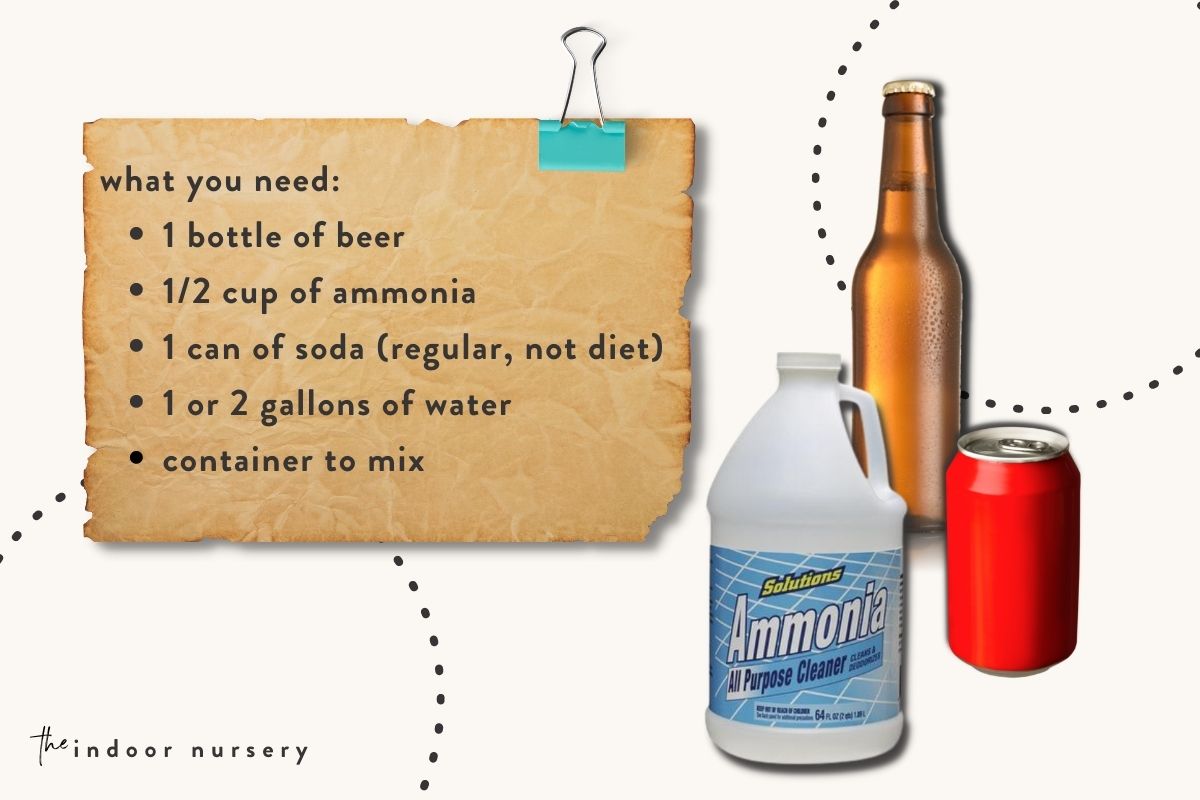
What you need:
- 1 bottle of beer
- 1/2 cup of ammonia
- 1 can of soda (regular, not diet)
- 1 or 2 gallons of water
- container to mix
Step-by-step instructions:
- Mix the soda, ammonia, and beer into a gallon of water
- Pour the mixture into the fresh compost heap, and turn the heap over to aerate it
Rice
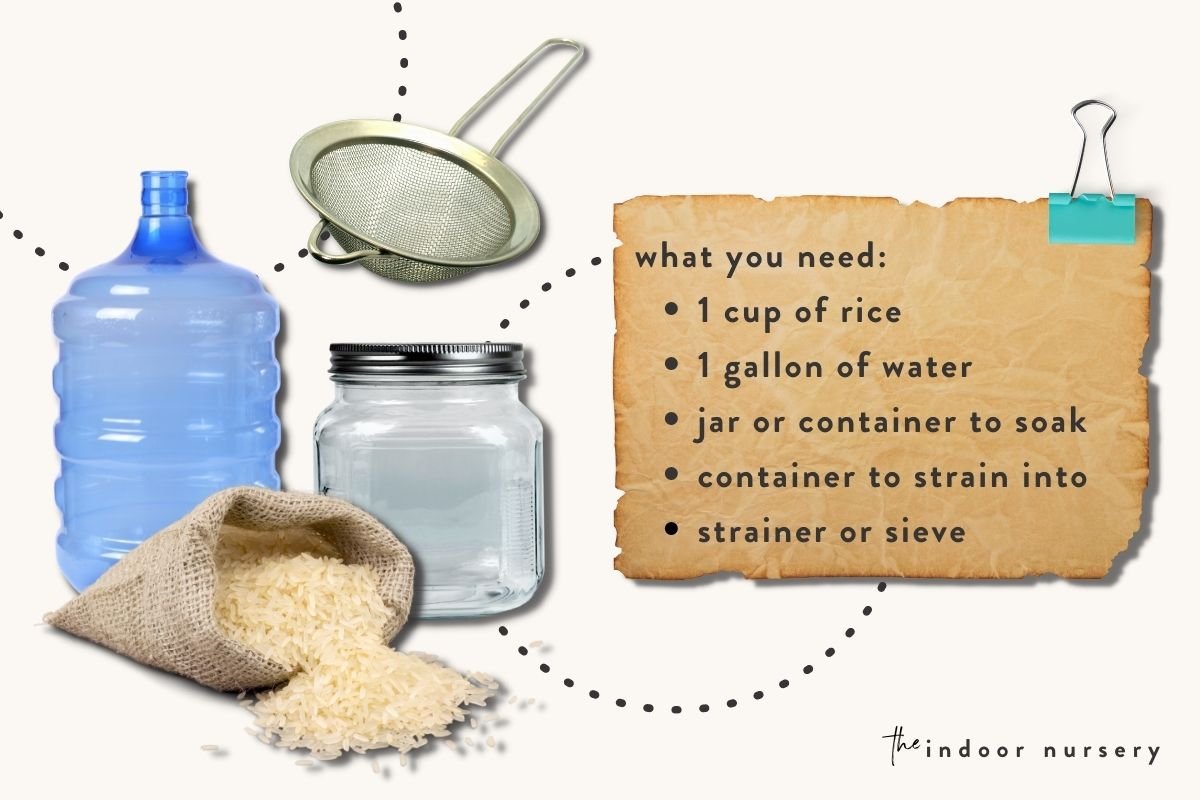
Another home option for a compost starter is a rice-based solution. If you soak a cup of rice in a gallon of water, the good bacteria that is on the rice will be soaked into the water, and, when added to a compost pile, will spread and get to work breaking things down. The bacteria is totally normal and is killed off when we cook the rice, and it’s part of the natural decomposition process. If stored rice gets moist (but not hot enough to be cooked), the bacteria will start to break it down.
What you need:
- 1 cup of rice
- 1 gallon of water
- jar or container to soak
- container to strain into
- strainer or sieve
Step-by-step instructions:
- Soak the rice in water for 30 min in large jar
- Drain the water from the rice with a strainer or sieve
- Pour the rice water into the compost
When to use a compost starter (and when not to)
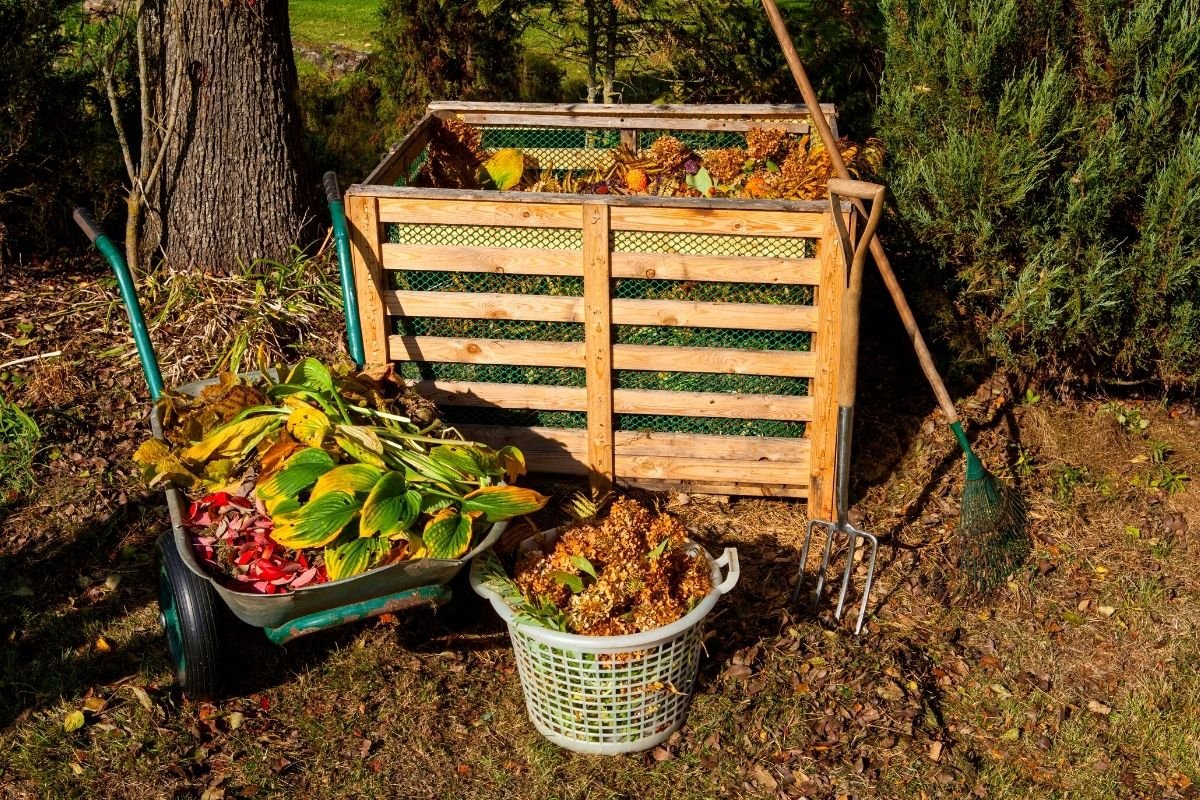
If you have the right mix of green and brown material, a compost starter isn’t totally necessary, but it helps to start the process, and in many cases, get it done faster. A starter is used at the beginning, rather than in the middle, of the composting cycle, and is more helpful under certain circumstances than in others.
You should use it if:
- The compost needs microorganisms – All compostable material has some of the necessary microbes already, and compost piles outside will get beneficial soil microbes from the ground, but if you’re composting in a bin or tumbler, rather than directly on the ground, adding bacteria creates larger population to get the process going.
- You need a speedy process – if you’re setting up a market garden or just got started late in the season and need to process some compost sooner than later, using a tarter will help you get a quick turnover.
You don’t need to use it if:
- The compost has already been going for a couple of weeks – if you’re part of the way through but not seeing much activity, or some items are breaking down but not others, you may need to identify the problem then add a compost accelerator, which is similar, but the compost will have to be treated differently than it would be at the beginning.
- There is adequate green, brown, air, and moisture – if you’re casually composting and have all the right conditions, you don’t need a compost starter. If you’re off balance in one of those, try amending the compost before trying an accelerator.
more about composting
- 10 Best Worm Composter Bins For Easy Homemade Compost
- Compost Starter 101: When You Need It And How To Make It
- How to make a DIY indoor worm composting bin in 4 steps
- What to do with extra scoby (hint: it’s good for the soil)
- Vermicomposting for beginners: how to compost indoors for happy plants
- How to use worm castings for happy plants
- How to make worm casting tea in 4 easy steps
- Here’s how to harvest worm castings
- how to use compost accelerator for faster composting
- how long does compost take to turn into nutritious soil? it depends

